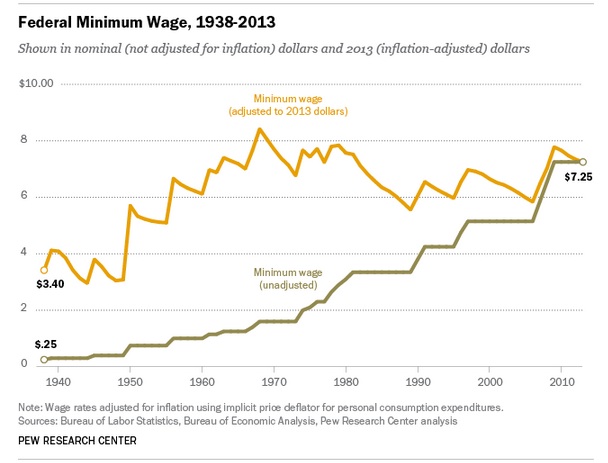Towards the end of the 1937-1938 recession, the Congress passed the Fair Labor Standards Act and the President signed it. Although it mandated $.25 as the first federal hourly minimum wage and affected less than one-fifth of the labor force, the Act was controversial. The night before signing the bill, President Roosevelt said in his fireside chat, “Do not let any calamity-howling executive with an income of $1,000 a day, …tell you…that a wage of $11 a week is going to have a disastrous effect on all American industry.”
Where are we going? To the timeless minimum wage debate.
The Past
Let’s start though by looking at the increase in the federal minimum wage:

The Present
These are the jobs that typically pay the federal minimum wage:

The Future
You can see below where the minimum wage will increase during 2015:

The Economic Disagreement
Here is a letter signed by 500 economists that states their opposition to minimum wage hikes. Representing the opposition, the letter says the minimum wage is the wrong approach if diminishing poverty and job growth are the goals.

By contrast, in the letter signed by 600 economists who support minimum wage hikes, the focus is the income boost provided by a higher minimum wage and the job growth they believe it creates.

Our Bottom Line: Confirmation Bias
With the minimum wage divide pretty close among economists, I suspect they and most of us are guilty of confirmation bias. Depending on our opinion of the minimum wage, we can find the statistics to support our position.







Interesting if you could break down economists quoted or referenced in polls by political affiliation, academic, financial or other industrial position, or government position. Seems nowadays political bias informs everything from academic economic or all research, the media, to even economists at every level. Truth seems to be secondary to argument of point of view.